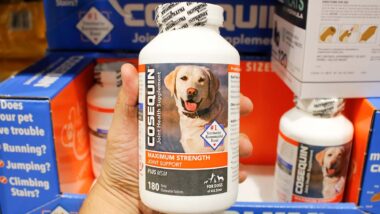Top Class Actions’s website and social media posts use affiliate links. If you make a purchase using such links, we may receive a commission, but it will not result in any additional charges to you. Please review our Affiliate Link Disclosure for more information.

Rite Aid lidocaine overview:
- Who: A Rite Aid customer is suing the pharmacy chain.
- Why: The plaintiff says the company makes lidocaine patches that don’t work as promised.
- Where: The Rite aid lidocaine lawsuit was filed in a New York federal court.
Rite Aid makes a lidocaine patch that does not work as promised because it doesn’t stick on the skin for as long as it says it will, a new class action lawsuit alleges.
Plaintiff Erin Neu filed the class action lawsuit against Rite Aid Corp. on April 29 in a New York federal court, alleging violations of state and federal consumer laws.
Rite Aid manufactures adhesive patches promising to deliver 4% lidocaine under the Rite Aid brand, Neu states. Lidocaine is a topical anesthetic.
Manufacturers of lidocaine patches attempt to get their patches to meet the Food and Drug Administration’s 4% benchmark based on the mass of the drug relative to the mass of the adhesive per patch, Neu says.
However, the amount of lidocaine contained in, or delivered by, a lidocaine patch cannot be determined based on the arbitrary measure of a patch’s drug-to-adhesive ratio, the lawsuit states.
“This allows Defendant to alter the total mass of lidocaine contained in the Product by adjusting the thickness of the patches’ back membrane without changing its dimensions,” the plaintiff says.
“This drug-to-adhesive ratio is misleading to consumers and doctors alike, who ordinarily expect that the percentage of an active ingredient in a drug has a direct correlation to the quantity, or efficacy, of that ingredient within the drug.”
Patches can peel off within minutes, lawsuit alleges
Because adequate adhesion is critical for the product to work, the class action lawsuit says, if a patch lifts or detaches while walking, sleeping or exercising, dosing is compromised.
“However, the Product cannot adhere for any time even approaching twelve hours, which renders the Directions misleading, because it assumes it will not have detached by then,” Neu says.
“Studies have shown the Product is unable to adhere to the skin for more than four hours, often peeling off within minutes of light activity, which renders the ‘Up to 12 Hours of Relief’ misleading, because this is a significant disparity between what is promised and what is delivered.”
The plaintiff seeks to represent a New York class of residents who purchased the product, plus a consumer fraud multistate class.
She is suing for violations of New York General Business Law, violations of state consumer fraud acts and for fraud. Neu seeks certification of the class action, damages, fees, costs and a jury trial.
Sandoz in March initiated a recall for more than 150,000 aprepitant capsules and lidocaine and prilocaine cream prescription drugs as the products’ packaging is not child-resistant.
What do you think of the allegations against Rite Aid in this case? Let us know in the comments.
She is represented by Spencer Sheehan of Sheehan & Associates PC.
The Rite Aid class action lawsuit is Erin Neu, et al. v. Rite Aid Corp., Case No. 2:23-cv-03242 in the U.S. District Court for the Eastern District of New York.
Don’t Miss Out!
Check out our list of Class Action Lawsuits and Class Action Settlements you may qualify to join!
Read About More Class Action Lawsuits & Class Action Settlements:















59 thoughts onRite Aid lidocaine patches don’t stay on or provide advertised relief, class action alleges
I used these for at least a year. Please add me. Thanks
Add me pls! They don’t work at all! It’s like a gel but no adhesive. As soon as u move it unpeels/falls off!
They don’t work at all! It’s like a gel but no adhesive. As soon as u move it unpeels/falls off!
Yes they do
Add me they definitely don’t work